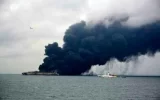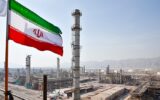
Pasargad Oil Company broke the export record in the last five years by exporting more than 246,000 tons of bitumen.

The director of the South Khorasan National Oil Products Distribution Company announced the supply and distribution of more than 160 million liters of gas oil in the first three months of this year in the province.

A senior expert in marine and energy industries, referring to the development of South Pars phases, described the country's progress in the offshore field as an occasion and said: Iran will need billions of dollars in various types of vessels and offshore industries in the coming years.

Mohsen Johari, Chairman of the Board of Directors of the CNG Association: The daily consumption of gasoline has exceeded 120 million liters.

Masoud Pezeshkian takes over the government while we have to import two billion dollars of gasoline this year. Expensive Russian gasoline will be the biggest challenge of the 14th government.

One of the achievements of the 13th government in the field of oil is related to the issue of offshore refineries; An issue that has been accompanied by many commotions in recent months and is trying to instill the lie that Iran has acquired part of the shares of foreign refineries.

Pre-registration for the 18th Iran Plast International Exhibition will officially start on July 22, 2024.

The collision of two oil tankers near the coast of Singapore occurred while some media reported that the cargo of one of these oil tankers was two million barrels of Iranian crude oil, but the Ministry of Petroleum stated that none of the damaged oil tankers were related to Iran and none of them were carrying oil. They were not raw from Iran.

The chairman of the Sri Lankan Tea Board said that the country has paid 55 million dollars out of 250.9 million dollars of its debt for buying fuel from Iran through the export of tea.

OPEC's secondary sources report shows that Iran produced 3.251 million barrels of crude oil in June, which was 13 thousand barrels more than in May 2024.










